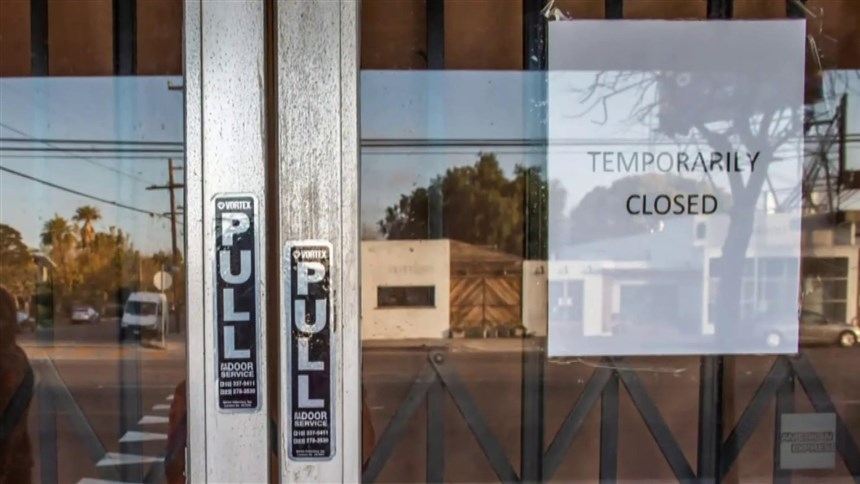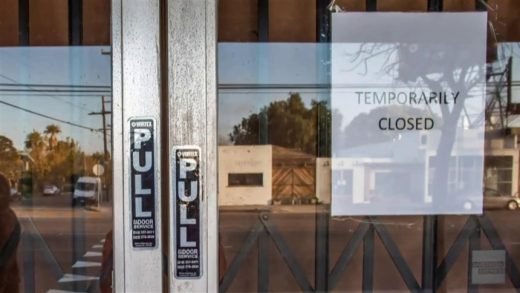4 Expert Predictions on Where the Global Economy is Headed

A recent report by the World Economic Forum polled 50 global economists to get their opinion on where the global economy will end up once the coronavirus epidemic is contained. The most optimistic predictions anticipated growth of just 0.7% and the more pessimistic predictions expect a slowdown of over 6%.
Experts are using different indicators that signal various possibilities from a V-shape recovery to a W-shape recovery. The market has avoided further breakdowns seen in March following the fed’s injection of $ 2.3 trillion back into the market. Despite the scale of the stimulus package, unemployment claims continue to rise, hitting 26 million in total and exceeding 2008’s figure.
While no one knows for sure, several economists and financial experts have vocalized strong beliefs about the severity of the situation and what we can expect moving forward in 2020 and beyond.
The Global Economy
The World Economic Outlook projects global growth in 2020 to fall to -3%, supporting the common sentiment shared by economists across the world. Gita Gopinath, the Economic Counsellor and Director of the Research Department at the International Monetary Fund (IMF), calls the lockdown the “worst economic downturn since the Great Depression”.
Gopinath adds, “Many countries now face multiple crises—a health crisis, a financial crisis, and a collapse in commodity prices, which interact in complex ways. There is considerable uncertainty about what the economic landscape will look like when we emerge from this lockdown.
The Housing Market
The National Association of Realtors reported an 8.5% plunge in home sales in March and Redfin data revealed homebuying demand was down 36% year-over-year. Famed real estate agent Aaron Kirman, host of CNBC’s “Listing Impossible”, predicts a massive slowdown in the market. In an interview with CNBC, Kirman stated, “Real estate is a mentality, and people do not buy when they are fearful. The longer this lasts, the worse it will be. Appraisals are down by about 80%.”
Michael Yardley, one of Australia’s leading wealth experts, described similar ambiguity in the market. “I realize there are some commentators out there making predictions; but my answer is – I really don’t know. Transaction levels are likely to be significantly impacted over the next few months, particularly with the increasingly strict social distancing rules.”
Cryptocurrencies
Cryptocurrencies, and in particular Bitcoin, have been more or less tied with the equities market throughout the recent downturn. Interestingly, Bitcoin was created during the last financial crisis as a decentralized solution to payment remittance. Enthusiasts of the digital asset expect it to flourish as central banks struggle to keep confidence and health in public markets.
Michael Sonnenshein, managing director of Grayscale, the world’s biggest cryptocurrency asset manager, predicts Bitcoin and other digital currencies will provide a “higher risk-reward scenario” that is hard to find in other asset classes. With increased volatility, cryptocurrencies are on the riskier end of investment opportunities.
Employment
Just two weeks ago, JP Morgan economists predicted that unemployment would hit 25 million with 20% total unemployment in the United States. That figure just passed 26 million and 17%, respectively, and is expected to continue as the economy suffers through a prolonged lockdown. In states heavily reliant on tourism, such as Nevada and Florida, unemployment is projected to be even worse. The EPI estimates that Nevada will lose over 14% of its private-sector employment.
CNBC’s Jim Cramer has been especially concerned with unemployment figures, quoting, “Unemployment matters more than a potential peak in the coronavirus transmission. I’ll become more sustainably bullish when there’s more testing when there’s less fear of getting sick, and most importantly when the unemployment rate peaks.”
Business & Finance Articles on Business 2 Community
(11)


